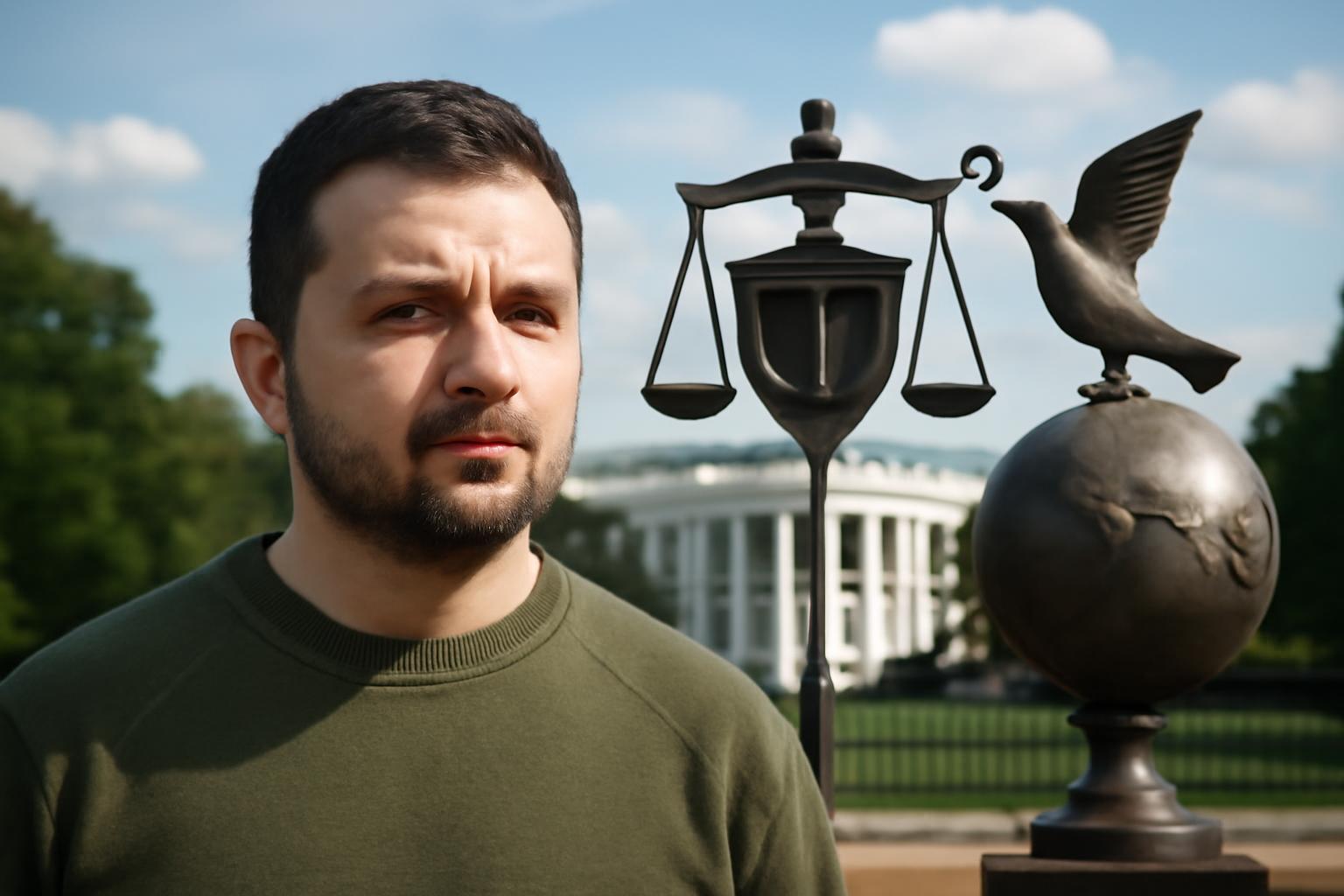President Zelensky is traveling to Washington to press for security guarantees that resemble Article 5 protections and to present a united front with European partners aimed at ending the war. Ahead of the visit, leaders from the Coalition of the Willing—France, Britain, Germany and others—held a video briefing in which Macron warned of an extremely serious situation for Ukraine and Europe, questioned Putin’s willingness to seek peace, and cautioned that showing weakness would invite future conflicts; Russia dismissed his remarks as a “niederträchtige Lüge.” Zelensky seeks assurances that any postwar settlement will safeguard Ukraine’s sovereignty and borders and will discuss with Trump the latter’s engagement with Putin, in a dialogue supported by Ursula von der Leyen and NATO’s Secretary-General Mark Rutte. Von der Leyen emphasized the United States’ readiness to back Article 5–style guarantees, with the coalition prepared to contribute as well. US envoy Steve Witkoff indicated that Russia has signaled acceptance of such guarantees, while noting that Ukraine’s path to full NATO membership remains off the table and that Moscow pledges not to seize more territory or redraw Europe’s borders in a peace accord. Zelensky insisted on a ceasefire as a precondition for negotiations, though Washington’s broader peace posture appeared to be more nuanced, as suggested by Rubio. On the battlefield, fighting continues with about 65 clashes reported on the eastern front that day, centering on Kupiansk and Pokrovske, as Ukrainian forces say they are taking active measures to thwart occupiers.
If this is what the rulers of nations call “security,” one must ask what market we have traded for it. They parade guarantees as if they were tokens in a game of geopolitical chess, yet the very idea hinges on a simple, almost naive belief: that other powers will honor complex promises because they look good on a teleprompter and because some leaders say so in a televised briefing. The illusion rests on a faith in order created by declarations rather than by an enduring, impersonal system of rules. True security is not produced by ad hoc coalitions issuing ultimatums and pledges to defend one another while counting the political costs in parliaments and ballots. It is the product of a reliable structure of laws, predictable institutions, and the incentive-compatible incentives that arise when nations and peoples can prosper through exchange rather than through conquest.
This pursuit of “Article 5 guarantees” and ceasable ceasefires reveals a deeper temptation: to regionalize sovereignty into a managed order of guarantees administered by a few great powers and their clients. Such arrangements may deliver short-run reassurance, but they embed a dependency on the willingness of leaders to maintain the discipline to deter aggression and to absorb the costs of enforcement. And where does that leave the ordinary citizen, who bears the burden of higher taxes, longer conscription, or reduced liberties in the name of collective security? The grand narrative of a united front also risks marginalizing the dispersed knowledge that makes a peaceful order possible—the local, particular, often quiet arrangements by which communities live, trade, and resolve disputes through law rather than through coercion.
If there is a path toward lasting peace, it must spring from the humble, practical foundations of liberal order: the rule of law, protections for sovereignty, stable and transparent institutions, and a framework in which nations can pursue security through prosperous cooperation rather than through amalgamated guarantees. The present clash on the ground, with dozens of skirmishes and a perpetual search for strategic leverage, underscores the truth that war is not a problem of rhetoric alone but of incentives. A credible peace rests not on the ability of leaders to issue stern statements, but on a system in which rights are protected, borders are respected, trade flows, and the costs and benefits of violence are weighed in a manner intelligible to those who must live with the consequences. If the West wishes to avert a future of cast-iron commitments and brittle guarantees, it must cultivate an order grounded in law, markets, and the peaceful coordination of diverse interests—an order in which nations voluntarily pursue cooperation, because it is the direction in which human cooperation, knowledge, and prosperity tend to move when left relatively free.
